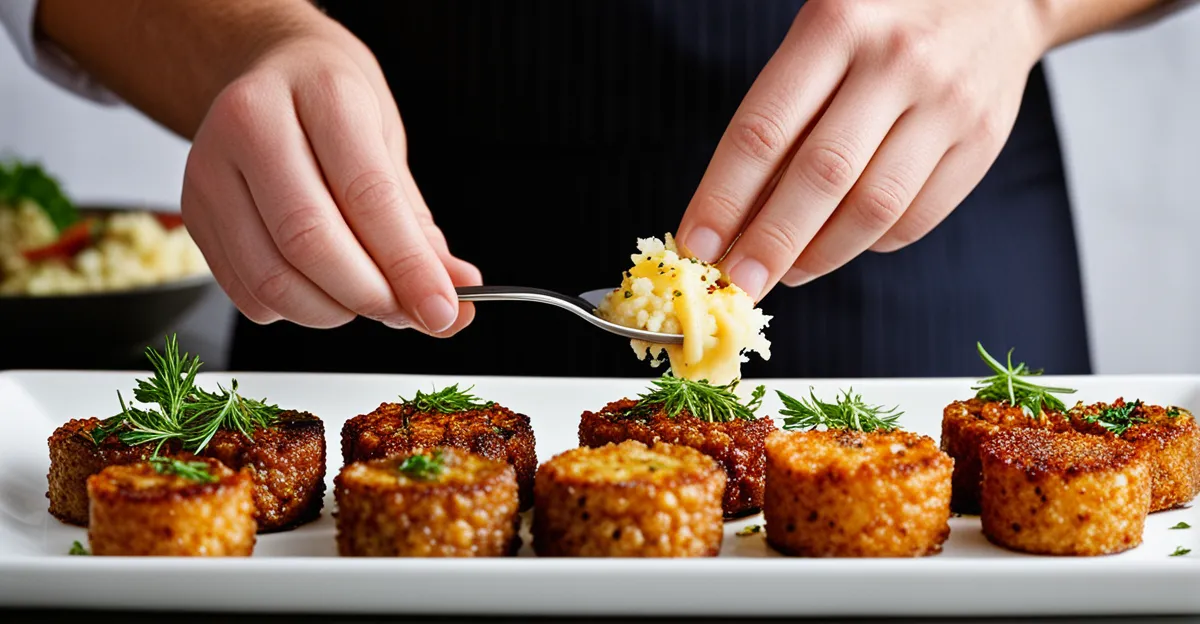Defining Characteristics of British Cuisine in the Modern Era
British cuisine today is defined by a blend of tradition and innovation that shapes its unique culinary identity. At its core, British cuisine features hearty, comforting dishes rooted in local ingredients, yet it embraces modern techniques and global influences. This balance makes it distinctive in the global food scene.
Traditional staples such as roast meats and puddings coexist with contemporary interpretations incorporating international flavors and creative presentations. British chefs actively reinterpret these classics, ensuring the cuisine remains dynamic while respecting heritage.
In parallel : How do you make a comforting bubble and squeak dish?
British cuisine’s global role extends beyond its borders due to this adaptability. Its culinary identity combines historical significance with forward-looking trends, making it appealing to an international audience. The country’s culinary presence reflects both the preservation of age-old practices and a readiness to evolve, illustrating how British cuisine’s distinctiveness thrives in a world of diverse eating habits.
Thus, British cuisine features an intricate interplay between localorigin authenticity and openness to innovation, securing its place on the global stage as both familiar and exciting.
Also read : What are some creative ways to serve a full English breakfast?
Historical and Cultural Roots Shaping British Food
British culinary heritage is deeply influenced by its rich history of British cuisine, marked by centuries of evolution that reflect societal and political changes. Key historical eras, such as the Middle Ages and Victorian times, introduced and refined many traditional British dishes still enjoyed today. These periods contributed to an enduring food tradition centered around simplicity, local sourcing, and seasonal cooking.
British colonial history also plays a significant role in shaping the culinary identity. Exposure to exotic ingredients and spices influenced British recipes, leading to a hybrid cuisine that blends indigenous flavors with imported elements. This historical fusion enriches the British culinary heritage while preserving classic dishes that anchor national identity.
Additionally, regional food practices persist as a testament to local cultures. From Scotland’s haggis to Wales’ laverbread, food traditions vary regionally, emphasizing the diversity within British cuisine. These enduring practices not only celebrate heritage but also contribute to the uniqueness of British food culture, ensuring that historical roots remain integral to its modern expression.
Influences of Immigration and Globalization
British cuisine features a remarkable multicultural influence shaped by centuries of immigration and global exchange. Immigrant communities have significantly enriched the culinary landscape, introducing new ingredients, spices, and cooking styles that blend with traditional British dishes. This fusion results in a dynamic British food evolution, where curries, stir-fries, and other international flavors coexist alongside classic fare.
How has culinary integration impacted British food? It has created a cuisine that reflects the diverse population of the UK. For example, British curry has become a national favorite, showcasing how immigrant contributions transform and redefine local taste preferences while maintaining a uniquely British identity.
Modern fusion dishes highlight this process, as chefs experiment by combining traditional recipes with global influences. This cultural amalgamation enhances the complexity of British culinary identity, making it more vibrant and appealing on the international stage.
Overall, the impact of multicultural influence is central to understanding how British cuisine continues to evolve—embracing diversity without losing its distinctive character or historical roots.
Distinctive Characteristics of British Cuisine in the Modern Era
British cuisine uniqueness stems from the seamless integration of its historical culinary roots with vibrant contemporary trends. This fusion allows modern British food to honor traditional dishes while embracing innovation, creating a dynamic and evolving culinary identity.
Recognisable traditional staples like roast beef, shepherd’s pie, and sticky toffee pudding remain central to British cuisine. These dishes preserve quintessential flavours—think savory herbs, rich gravies, and comforting textures—that define British food’s nostalgic appeal.
Regional diversity further amplifies British cuisine uniqueness. Distinct areas contribute local specialties and ingredients, shaping the national identity. For example, Cornish pasties highlight regional pastry mastery, while Scotland’s haggis showcases a unique cultural heritage. This geographic variety introduces a broad palette of tastes and textures to modern British food.
Ultimately, the distinguishing features of British cuisine lie in its ability to balance respect for heritage with openness to new influences. This blend fosters an accessible yet sophisticated culinary scene, ensuring British cuisine remains relevant and celebrated today.





